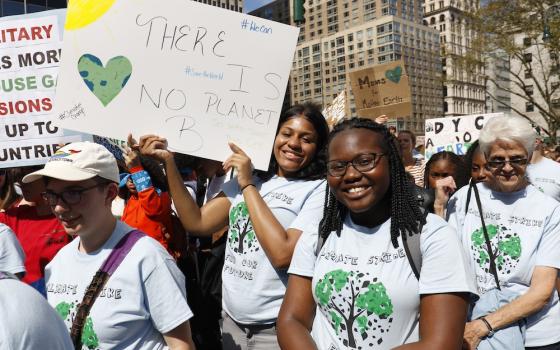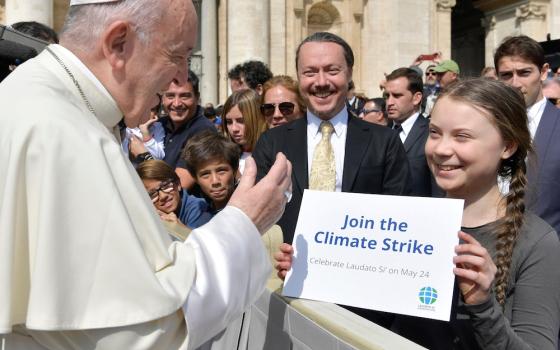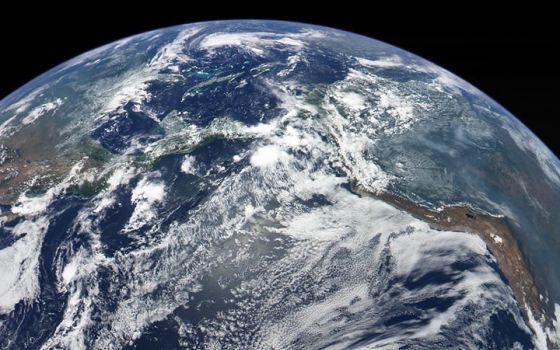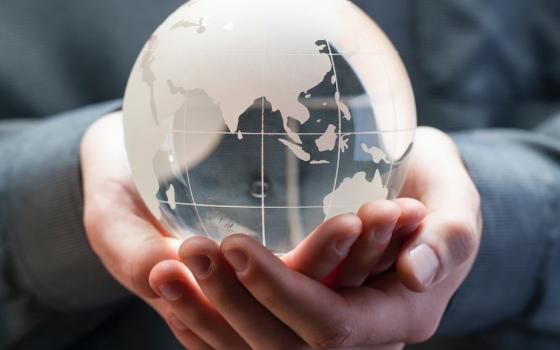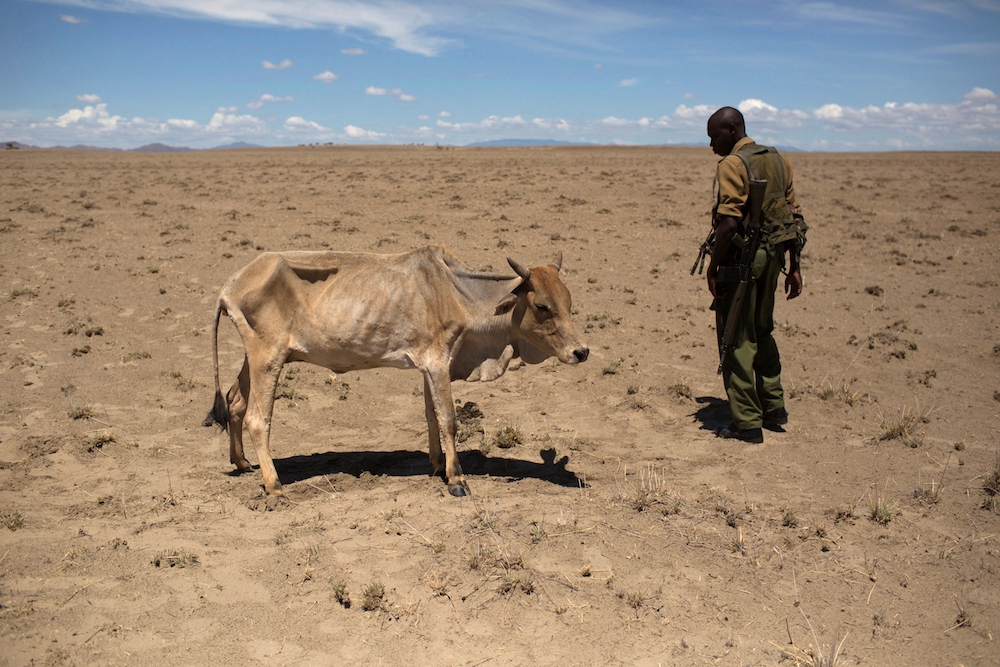
A Kenyan soldier looks at a cow during a drought in 2013. Water scarcity is expected to be a key cause of future climate migration. (CNS photo/Siegfried Modola, Reuters)
Editor's note: In his Lenten "Reflections on the Care of Creation," Fr. Emmet Farrell examines our impact on the planet and our responsibility, as people of faith, for our common home. You can sign up here to receive Fr. Farrell's reflections in your inbox every Monday, Wednesday and Friday from Feb. 17 to April 2.
See:
In 2017, David Wallace-Wells wrote in The Uninhabitable Earth that with diminished resources and increased migration caused by flooding, "social conflict could more than double this century." And a 2018 World Bank report concluded that water scarcity, crop failure and rising sea levels could displace 143 million people by 2050.
The report focused on Sub-Saharan Africa, South Asia and Latin America, which represent 55% of the developing world's population. Unsurprisingly, the poorest and most climate-vulnerable areas are expected to be hit hardest. "The great paradox of climate change," the Evangelical Lutheran Church in America states, "is that those least responsible for the emission of pollutants harmful to the earth will be most severely affected and least able to adapt to changing conditions."
The World Bank makes three key recommendations: "Cutting global greenhouse gas emissions to reduce climate pressure on people and livelihoods; transforming development planning to factor in the entire cycle of climate migration (before, during and after migration); [and] investing in data and analysis to improve understanding of internal climate migration trends … at the country level."
In 2019, Philip Alston, United Nations special rapporteur on extreme poverty and human rights, warned in a report that climate change threatens to undermine progress the world has made in the past half-century on development, poverty, global health and human rights.
"The risk of community discontent, of growing inequality, and of even greater levels of deprivation among some groups will likely stimulate nationalist, xenophobic, racist and other responses. The impacts of the climate crisis could increase divisions," the report said. "We risk a 'climate apartheid' scenario where the wealthy pay to escape overheating, hunger, and conflict while the rest of the world is left to suffer."
Drought and severe storms are already pushing people away from their homes in places like Honduras, which suffered two strong hurricanes in rapid succession in 2020. Many will head to the southern U.S. border in search of better opportunities, despite the last U.S. administration's harsh stance on immigration and asylum. The question is how the country will respond now.
"How did our country reach the point where we are tear-gassing mothers and children [seeking asylum]?" Jesuit Fr. James Martin wrote in 2018. "One reason is because of the widespread myths about these brothers and sisters of ours." The myths, he said, are that "They are 'illegals.' … We cannot afford them. … They are mainly criminals." Those generalizations are untrue, he says, adding that we must "remember what Jesus said about welcoming the stranger."
Advertisement
Judge:
In the present condition of global society … the principle of the common good immediately becomes, logically and inevitably, a summons to solidarity and a preferential option for the poorest of our brothers and sisters. (Laudato Si', 158)
The majority of people living on our planet profess to be believers. This should spur religions to dialogue among themselves for the sake of protecting nature, defending the poor, and building networks of respect and fraternity. … The gravity of the ecological crisis demands that we all look to the common good. (Laudato Si', 201)
Privileged Christians in our present global context need to move from a culture of consumerism to a culture of conservation and sharing. The challenge is to examine one’s own participation in ecologically destructive habits. Our churches must become places where we have honest debates about, and are encouraged to live into, more sustainable ways of living. God calls us to die to old ways of thinking and living and be raised to new life with renewed hearts and minds. (Episcopal Church House of Bishops Pastoral Teaching, September 2011)
The streams of God are filled with water to provide the people with grain, for so you have ordained it. (Psalm 65:9:13)
Act:
- Ask someone who assists migrants why families risk their lives and security, searching for opportunities.
- Invite a speaker from Catholic Relief Services to explain the situation in the world and the agency's work with more than 60,000 refugees in our "common home."
- Talk with a migrant or refugee neighbor about their experience.
- Invite a speaker or migrant from another race or culture to your group or church community.
- Work with a local grassroots group to encourage recent immigrants to become informed and to vote.




